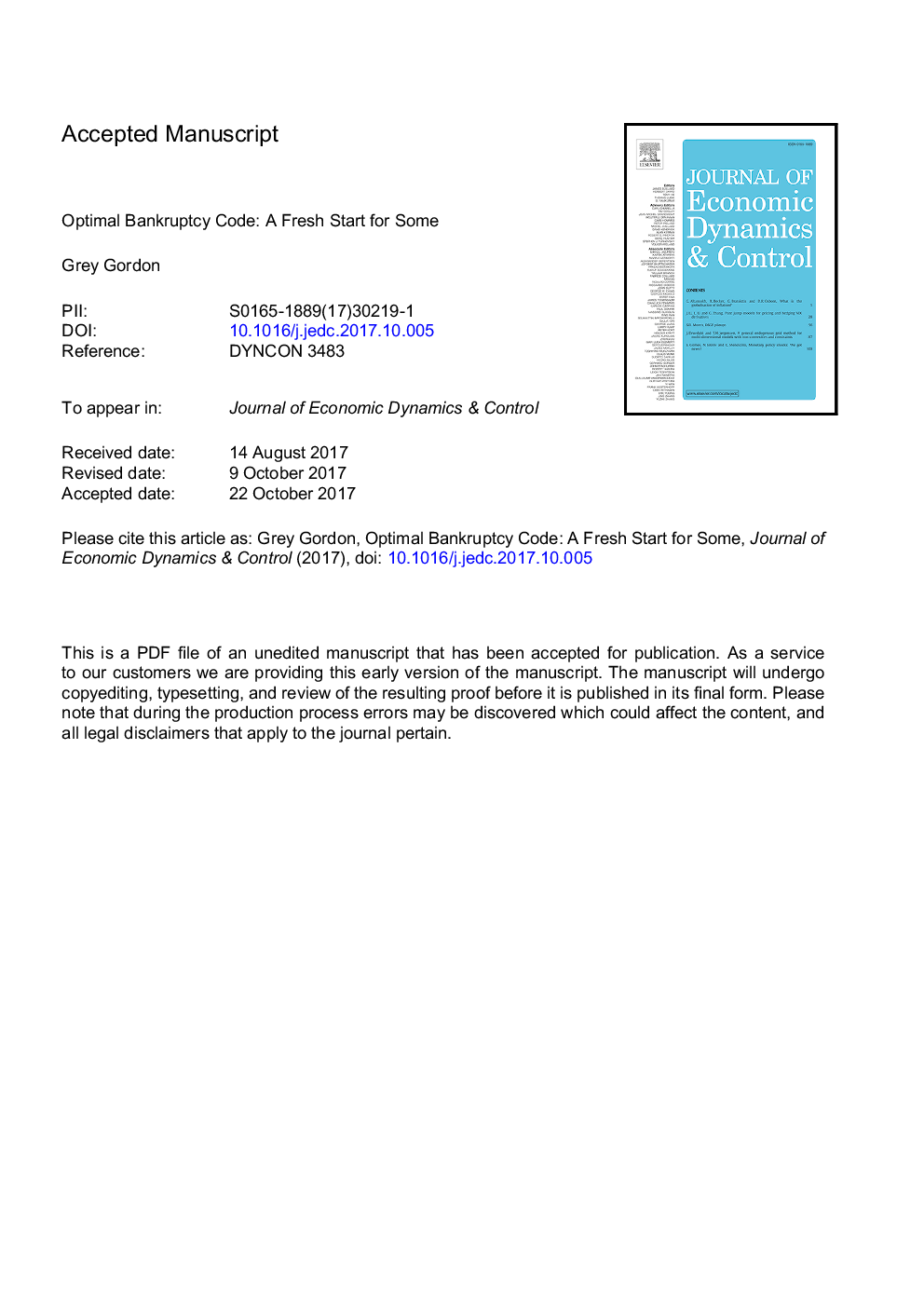| Article ID | Journal | Published Year | Pages | File Type |
|---|---|---|---|---|
| 7358953 | Journal of Economic Dynamics and Control | 2017 | 54 Pages |
Abstract
What is the optimal consumer bankruptcy law? I answer this question using an incomplete markets life-cycle model with a planner who can choose state-contingent bankruptcy costs. I develop two main theoretical characterizations. First, whenever debt discharge is allowed, it should occur without cost. Second, bankruptcy should always be allowed for highly-indebted households. Quantitatively, the optimal policy can generate a welfare gain as large as 11.6%. However, attractive informal default, asymmetric information, and moral hazard can reduce the welfare gain to as little as 0.7%.
Related Topics
Physical Sciences and Engineering
Mathematics
Control and Optimization
Authors
Grey Gordon,
